Peer-reviewed Publications
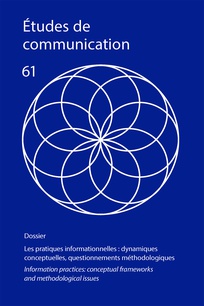 Can we break free from the norm in the study of news informational practices? The case of a survey on students With Valérie Croissant, Simon Gadras, Isabelle Hare, Annelise Touboul. Published in Études de communication, n° 61, 2023. DOI : 10.4000/edc.16138
Can we break free from the norm in the study of news informational practices? The case of a survey on students With Valérie Croissant, Simon Gadras, Isabelle Hare, Annelise Touboul. Published in Études de communication, n° 61, 2023. DOI : 10.4000/edc.16138 Full text in French (restricted access)
The informational practices of young people have been or are regularly studied, questioned and mobilized by many actors of society, public authorities, researchers, associations and the media. This contribution tightens the focus on young and university students, studying in the field of humanities and social sciences, and observes their informational practices of the digital news. It studies how these students consume news information through the look they have about their own practices. In the end, the article makes the central hypothesis that their relationship to the news and their consumption would be the result of constant adjustments between different practices and standard learning (media education, family and friendly environment, etc.).
Full text in French (restricted access)
The informational practices of young people have been or are regularly studied, questioned and mobilized by many actors of society, public authorities, researchers, associations and the media. This contribution tightens the focus on young and university students, studying in the field of humanities and social sciences, and observes their informational practices of the digital news. It studies how these students consume news information through the look they have about their own practices. In the end, the article makes the central hypothesis that their relationship to the news and their consumption would be the result of constant adjustments between different practices and standard learning (media education, family and friendly environment, etc.).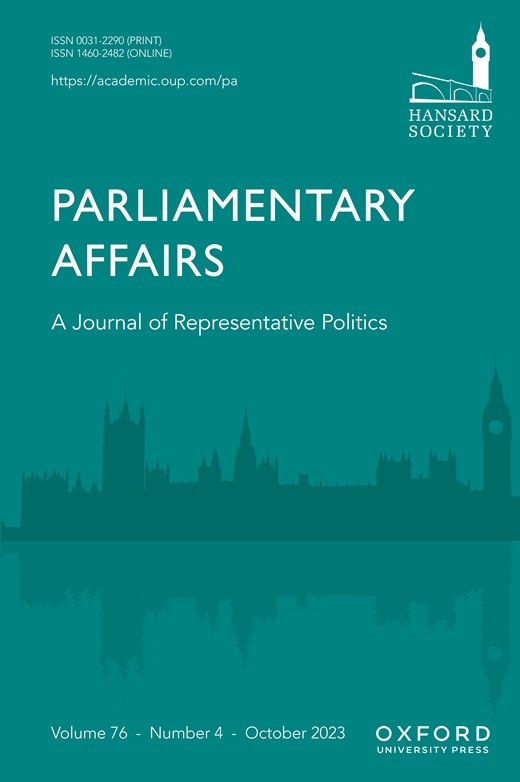 What Do We Call an "MP"? On Categories of Thought in the Anthropology of Parliaments Publié dans Parliamentary Affairs, 2023. DOI : 10.1093/pa/gsad021
What Do We Call an "MP"? On Categories of Thought in the Anthropology of Parliaments Publié dans Parliamentary Affairs, 2023. DOI : 10.1093/pa/gsad021 Full text in English (restricted access)
This article question what social scientists mean by the term of “Member of Parliament” (“MP”) and explain that they tend associate it with a universal conception of the parliamentary representation. The author starts to present the reason of this presupposition which lay in the resistance of the legislative studies to interpretive approaches, and show its limits. He then defends the necessity, for an extensive scientific knowledge of deliberative assemblies, to distinguish the vernacular meanings of the notion of “MP” and its analytical meaning. Finally, he takes the example of his own research in France to show the concrete difficulties of a singular conception of parliamentary representation and to expose the virtues of using empirical based ideal-types to overcome them.
Full text in English (restricted access)
This article question what social scientists mean by the term of “Member of Parliament” (“MP”) and explain that they tend associate it with a universal conception of the parliamentary representation. The author starts to present the reason of this presupposition which lay in the resistance of the legislative studies to interpretive approaches, and show its limits. He then defends the necessity, for an extensive scientific knowledge of deliberative assemblies, to distinguish the vernacular meanings of the notion of “MP” and its analytical meaning. Finally, he takes the example of his own research in France to show the concrete difficulties of a singular conception of parliamentary representation and to expose the virtues of using empirical based ideal-types to overcome them. Open digital infrastructures for bridging professional cultures: the case of extreme citizen science between journalism and research With Alessia Smaniotto. Published on Open Research Europe, 2023. DOI: 10.12688/openreseurope.15262.1
Open digital infrastructures for bridging professional cultures: the case of extreme citizen science between journalism and research With Alessia Smaniotto. Published on Open Research Europe, 2023. DOI: 10.12688/openreseurope.15262.1
 Full text in English (open access)
In this paper, we suggest framing citizen science projects as interprofessional collaborations. We first focus on one case study − the PLACES project − implementing three “extreme citizen science” collaborations between social scientists and journalists. We then show that in order to enable successful collaborations, participants need to be supported in aligning their professional practices, goals, and ways of framing the research problem. In the second part, with insights from another project (COESO), we show how dedicated infrastructures, understood as social and technical ecosystems, can support the creation of communities of practice, thus bridging the gap between the professional cultures of the people involved in citizen science endeavours. Another key condition for the success of extreme citizen science projects relies on the projects’ governance, which can be influenced by the infrastructures’ design.
Full text in English (open access)
In this paper, we suggest framing citizen science projects as interprofessional collaborations. We first focus on one case study − the PLACES project − implementing three “extreme citizen science” collaborations between social scientists and journalists. We then show that in order to enable successful collaborations, participants need to be supported in aligning their professional practices, goals, and ways of framing the research problem. In the second part, with insights from another project (COESO), we show how dedicated infrastructures, understood as social and technical ecosystems, can support the creation of communities of practice, thus bridging the gap between the professional cultures of the people involved in citizen science endeavours. Another key condition for the success of extreme citizen science projects relies on the projects’ governance, which can be influenced by the infrastructures’ design.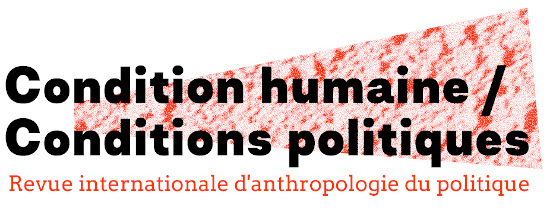 Disembodying the Legislative Body. Representing, Deliberating and Voting Remotely in Times of Crisis Published in Condition humaine / Conditions politiques, n° 3, 2022. DOI: 10.56698/chcp.704
Disembodying the Legislative Body. Representing, Deliberating and Voting Remotely in Times of Crisis Published in Condition humaine / Conditions politiques, n° 3, 2022. DOI: 10.56698/chcp.704
 Full text in French (open access) and
Full text in French (open access) and  Long astract in English (open access)
This article examines the effectiveness of parliamentary representation should elected representatives deliberate and vote remotely for being unable to be on the premises of the Palais Bourbon. Such practices are still in the early stages of development, but are likely to mature in the near future, according to the representatives who advocate them, because of the guarantees they would offer in terms of efficiency and resilience of the legislative power. However, it is possible to consider, and this is the paper’s main argument, that such future development of remote working tools in parliamentary practice stems above all from the willingness of a new generation of representatives to relocate their activities at the level of their constituencies. In this sense, this article points to the potential emergence of a new doctrine of “forming assembly” in 21st-century France or, at least, to an evolution of the conditions of actualization of the democratic ideal.
Long astract in English (open access)
This article examines the effectiveness of parliamentary representation should elected representatives deliberate and vote remotely for being unable to be on the premises of the Palais Bourbon. Such practices are still in the early stages of development, but are likely to mature in the near future, according to the representatives who advocate them, because of the guarantees they would offer in terms of efficiency and resilience of the legislative power. However, it is possible to consider, and this is the paper’s main argument, that such future development of remote working tools in parliamentary practice stems above all from the willingness of a new generation of representatives to relocate their activities at the level of their constituencies. In this sense, this article points to the potential emergence of a new doctrine of “forming assembly” in 21st-century France or, at least, to an evolution of the conditions of actualization of the democratic ideal. The French magazine Sciences Humaines devoted few paragraphs about this article, in its July 2022 issue.
The French magazine Sciences Humaines devoted few paragraphs about this article, in its July 2022 issue. The Digital Identity of the Ethnographer. Reflexive Analysis and Strategies of Investigation in Multiplex Fields Published in Terminal, n° 129 « Explorer les méthodes en ligne pour des terrains hors ligne », 2021.
The Digital Identity of the Ethnographer. Reflexive Analysis and Strategies of Investigation in Multiplex Fields Published in Terminal, n° 129 « Explorer les méthodes en ligne pour des terrains hors ligne », 2021.
 Full text in French (open access)
This article sets out the epistemological and methodological challenges of fieldwork in social worlds where the ways of articulating online and offline sociabilities are not unanimous among social actors, to the point of generating controversy. In this type of fieldwork, where 'dynamic multiplexity' is observed, the interactional logics are contradictory and shifting, which the ethnographer must take into account when conducting his or her investigation. Drawing on the example of my fieldwork at the French National Assembly between 2007 and 2019, I show that the researcher benefits from acting in the same way as those he or she studies, by adopting a reflexive stance regarding his ‘digital identity’ and using it to develop strategies designed to get around the rigidities that certain rules of local sociability impose on his or her investigations. More broadly, this article aims to make students and researchers aware of the need to pay close attention to their own digital practices when engaging in fieldwork, whether or not it focuses on the digital issue, as they are so likely to influence the survey.
Full text in French (open access)
This article sets out the epistemological and methodological challenges of fieldwork in social worlds where the ways of articulating online and offline sociabilities are not unanimous among social actors, to the point of generating controversy. In this type of fieldwork, where 'dynamic multiplexity' is observed, the interactional logics are contradictory and shifting, which the ethnographer must take into account when conducting his or her investigation. Drawing on the example of my fieldwork at the French National Assembly between 2007 and 2019, I show that the researcher benefits from acting in the same way as those he or she studies, by adopting a reflexive stance regarding his ‘digital identity’ and using it to develop strategies designed to get around the rigidities that certain rules of local sociability impose on his or her investigations. More broadly, this article aims to make students and researchers aware of the need to pay close attention to their own digital practices when engaging in fieldwork, whether or not it focuses on the digital issue, as they are so likely to influence the survey.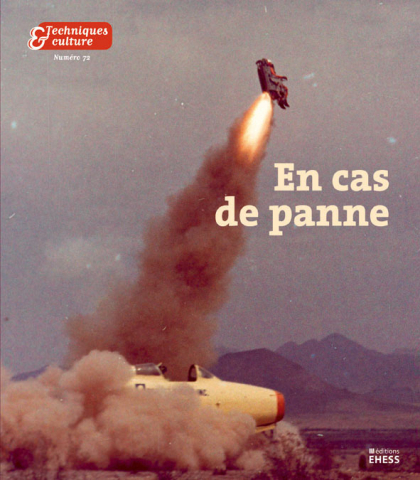 Electronic Voting at the French National Assembly. Prevent and Contain the Failure in the Republic Published in Techniques & Culture [online], Supplements in the issue 72 « En cas de panne », 2019.
Electronic Voting at the French National Assembly. Prevent and Contain the Failure in the Republic Published in Techniques & Culture [online], Supplements in the issue 72 « En cas de panne », 2019.
 Full text in French (open access)
The electronic voting system used by the French National Assembly’s Members of Parliament is presently receiving careful attention, as it must not fail under any circumstances. Nevertheless, the Standing Orders of the institution provide the voting procedures to be applied in the event of any malfunction on its part. In this article, I question these two apparently contradictory facts presented above. Why this imperative quest for reliability if there is an alternative way to vote? Conversely, why this regulatory provision if this system cannot fail? I begin by briefly retracing the history of this “voting machine” installed in the hemicycle of the Palais Bourbon since 1959, and then describe its infrastructure. In order to explain the feared risks, two failure situations that occurred in October 1997 are presented and analyzed, showing that the shortcomings of the machine are interpreted as those of the political system itself, i.e. that of the French Fifth Republic. To conclude, I detail the strategies undertaken by the parliamentary administration to achieve this objective of reliability, by showing that this voting machine meets the expectations to which it is subject thanks to invisible human activities are closely linked to its functioning. Overall, this article deals both with the cultural representations surrounding a technical device where the functioning of the State apparatus relies upon it, and the conditions of possibility of this technical reliability.
Full text in French (open access)
The electronic voting system used by the French National Assembly’s Members of Parliament is presently receiving careful attention, as it must not fail under any circumstances. Nevertheless, the Standing Orders of the institution provide the voting procedures to be applied in the event of any malfunction on its part. In this article, I question these two apparently contradictory facts presented above. Why this imperative quest for reliability if there is an alternative way to vote? Conversely, why this regulatory provision if this system cannot fail? I begin by briefly retracing the history of this “voting machine” installed in the hemicycle of the Palais Bourbon since 1959, and then describe its infrastructure. In order to explain the feared risks, two failure situations that occurred in October 1997 are presented and analyzed, showing that the shortcomings of the machine are interpreted as those of the political system itself, i.e. that of the French Fifth Republic. To conclude, I detail the strategies undertaken by the parliamentary administration to achieve this objective of reliability, by showing that this voting machine meets the expectations to which it is subject thanks to invisible human activities are closely linked to its functioning. Overall, this article deals both with the cultural representations surrounding a technical device where the functioning of the State apparatus relies upon it, and the conditions of possibility of this technical reliability.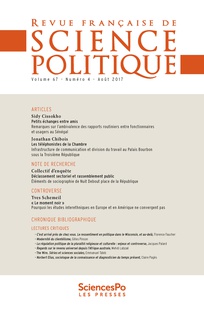 The Telephone Operators of France’s Chamber of Deputies. Communication Infrastructure and Division of Labor at the Palais Bourbon during the Third Republic Published in the Revue française de science politique, vol. 67, n° 4, 2017, p. 653-673.
The Telephone Operators of France’s Chamber of Deputies. Communication Infrastructure and Division of Labor at the Palais Bourbon during the Third Republic Published in the Revue française de science politique, vol. 67, n° 4, 2017, p. 653-673.
 Full text in English (restricted access)
This article deals with the transformation of the profession of MPs in France during the Third Republic, caused by the installation of the telephone and the creation of a service in charge of its operation at the Palais Bourbon, since 1881. The analysis of the historical archives of the Chamber’s quaestors shows that, due to various constraints, the appropriation of this means of communication was singular: it took the form of a delegated use. Instead of phoning by themselves, MPs progressively unloaded their calls on the telephonists, usher in a new dividing up of parliamentary work. The formalization of MPs' telephone use then illustrates the rationalization of French parliamentarism at the beginning of the 20th century
Full text in English (restricted access)
This article deals with the transformation of the profession of MPs in France during the Third Republic, caused by the installation of the telephone and the creation of a service in charge of its operation at the Palais Bourbon, since 1881. The analysis of the historical archives of the Chamber’s quaestors shows that, due to various constraints, the appropriation of this means of communication was singular: it took the form of a delegated use. Instead of phoning by themselves, MPs progressively unloaded their calls on the telephonists, usher in a new dividing up of parliamentary work. The formalization of MPs' telephone use then illustrates the rationalization of French parliamentarism at the beginning of the 20th century The French journal Techniques et culture published on its blog a review of this article in April, 2018.
The French journal Techniques et culture published on its blog a review of this article in April, 2018.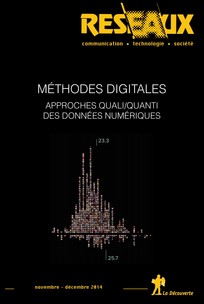 Twitter and Relations of Seduction between MPs and Journalists. The Quatre Colonnes and Digital Sociabilities Published in Réseaux, vol. 6, n°188, 2014, p. 201-228.
Twitter and Relations of Seduction between MPs and Journalists. The Quatre Colonnes and Digital Sociabilities Published in Réseaux, vol. 6, n°188, 2014, p. 201-228.
 Full text in French
This article describes how Twitter has made its way into the centre of the games of influence between MPs and journalists in the production of political news in France today. The analysis shows how the new uses of the media that Twitter facilitates enable Deputies to break free from a parliamentary institution that historically has closely controlled the media’s coverage of its activities. However, while this dynamic contributes to bringing into the open relations between the press and the Assembly, the modes of interaction between MPs and journalists in this space are not significantly different from those prevailing in the Quatre Colonnes (the hall where MPs and journalists meet).
Full text in French
This article describes how Twitter has made its way into the centre of the games of influence between MPs and journalists in the production of political news in France today. The analysis shows how the new uses of the media that Twitter facilitates enable Deputies to break free from a parliamentary institution that historically has closely controlled the media’s coverage of its activities. However, while this dynamic contributes to bringing into the open relations between the press and the Assembly, the modes of interaction between MPs and journalists in this space are not significantly different from those prevailing in the Quatre Colonnes (the hall where MPs and journalists meet). The French magazine Sciences Humaines devoted few paragraphs about this article, in its June 2015 issue.
The French magazine Sciences Humaines devoted few paragraphs about this article, in its June 2015 issue.
Book Chapters
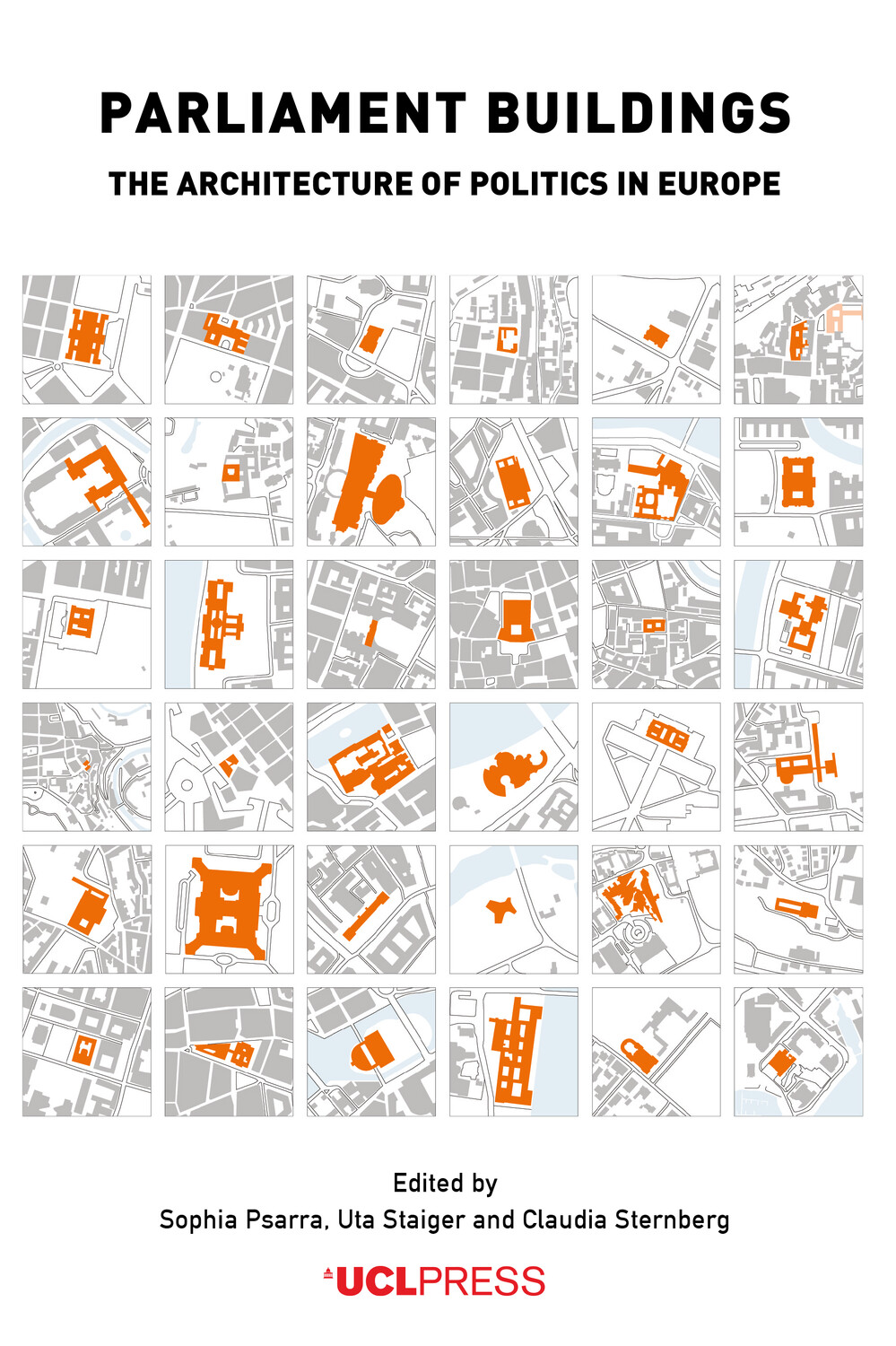 Inhabiting the Palais Bourbon together: Sharing, allocating and regulating parliamentary space among its multiple users at the French National Assembly Published in Psarra S., Staiger U. & Sternberg C. (eds), Parliament Buildings: The architecture of politics in Europe, London, UCL Press, 2023.
Inhabiting the Palais Bourbon together: Sharing, allocating and regulating parliamentary space among its multiple users at the French National Assembly Published in Psarra S., Staiger U. & Sternberg C. (eds), Parliament Buildings: The architecture of politics in Europe, London, UCL Press, 2023.
 Full text in English (open access), forthcoming
This chapter looks at how the French National Assembly takes advantage of the buildings in which it sits - the Palais Bourbon - to give material existence to the ideal of popular sovereignty. My first objective is to show how (according to what logic, for what purpose and with what means) the parliamentary institution dynamically distributes the occupation of this place among its different users and regulates its uses. In the end, I show that the Assembly now inhabits the Palais Bourbon in a way that affirms and promotes a particular vision of national representation, with distant historical roots, in particular through a policy of welcoming the public that reinforces the position of the public as spectators of parliamentary work and that of the deputies as the only legitimate actors in debates.
Full text in English (open access), forthcoming
This chapter looks at how the French National Assembly takes advantage of the buildings in which it sits - the Palais Bourbon - to give material existence to the ideal of popular sovereignty. My first objective is to show how (according to what logic, for what purpose and with what means) the parliamentary institution dynamically distributes the occupation of this place among its different users and regulates its uses. In the end, I show that the Assembly now inhabits the Palais Bourbon in a way that affirms and promotes a particular vision of national representation, with distant historical roots, in particular through a policy of welcoming the public that reinforces the position of the public as spectators of parliamentary work and that of the deputies as the only legitimate actors in debates.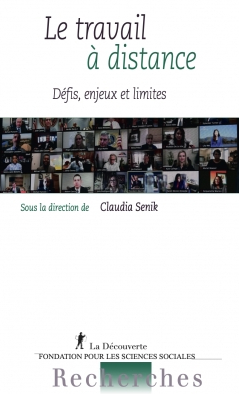 Remote Representation of Citizens: Is the Future of the Parliamentary Mandate in Telework? Published in Senik C. (dir), Le travail à distance. Défis, enjeux et limites, Paris, La Découverte, 2023.
Remote Representation of Citizens: Is the Future of the Parliamentary Mandate in Telework? Published in Senik C. (dir), Le travail à distance. Défis, enjeux et limites, Paris, La Découverte, 2023.
 Full text in French (open access)
This chapter outlines the historically ambiguous position of the National Assembly on the issue of teleworking for MPs, favouring it as much as possible when sitting in Paris to facilitate communication with constituencies, but at the same time restraining it as much as possible in the opposite direction so as not to encourage absenteeism in the hemicycle. During the 15th legislature of the Fifth Republic (2017-2022) and the pandemic crisis of 2020, the teleworking of MPs from constituencies has been experimented with, so that it has become not only feasible but also desirable in certain circumstances. The question now arises whether it should be extended to non-crisis situations, which is the subject of conflicting feelings. For those who have a strong position in the Assembly, it would be a threat to democracy, while for others it would be a means of restoring equality of representation between the territories of the Republic.
Full text in French (open access)
This chapter outlines the historically ambiguous position of the National Assembly on the issue of teleworking for MPs, favouring it as much as possible when sitting in Paris to facilitate communication with constituencies, but at the same time restraining it as much as possible in the opposite direction so as not to encourage absenteeism in the hemicycle. During the 15th legislature of the Fifth Republic (2017-2022) and the pandemic crisis of 2020, the teleworking of MPs from constituencies has been experimented with, so that it has become not only feasible but also desirable in certain circumstances. The question now arises whether it should be extended to non-crisis situations, which is the subject of conflicting feelings. For those who have a strong position in the Assembly, it would be a threat to democracy, while for others it would be a means of restoring equality of representation between the territories of the Republic. The French newspaper Le Monde devoted an article about this chapter in its June 2015 issue.
The French newspaper Le Monde devoted an article about this chapter in its June 2015 issue.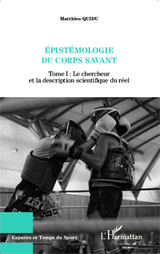 An Organic Metaphor about Reflexivity. Ethnography, Epistemologies and Writing Co-authored with Fred Pailler.Published in Quidu M. (ed.), Épistémologie du corps du savant (tome I). Le chercheur et la description scientifique du réel, Paris : L’Harmattan, 2014, p. 219-239.
An Organic Metaphor about Reflexivity. Ethnography, Epistemologies and Writing Co-authored with Fred Pailler.Published in Quidu M. (ed.), Épistémologie du corps du savant (tome I). Le chercheur et la description scientifique du réel, Paris : L’Harmattan, 2014, p. 219-239.
 Full text in French (open access)
This paper discusses how reflexivity exercise, in anthropology and sociology, has become a know-how provided by the academic institution to its students. However, this know-how did not help the authors to explore their own PhD fieldwork, but rather led them to confusion and misunderstandings. Several discrepancies are identified here and some theoretical assumptions are questioned. The exercise of reflexivity is then reformulated to give legitimacy to forms of off-protocol writing, which require taking into account the slowness, the situated nature and the non-reproducibility of the process of knowledge production. Such a formulation leads to join methodological issues to the fieldwork ones which, according to the authors, produces a different rapport to the scientific statement.
Full text in French (open access)
This paper discusses how reflexivity exercise, in anthropology and sociology, has become a know-how provided by the academic institution to its students. However, this know-how did not help the authors to explore their own PhD fieldwork, but rather led them to confusion and misunderstandings. Several discrepancies are identified here and some theoretical assumptions are questioned. The exercise of reflexivity is then reformulated to give legitimacy to forms of off-protocol writing, which require taking into account the slowness, the situated nature and the non-reproducibility of the process of knowledge production. Such a formulation leads to join methodological issues to the fieldwork ones which, according to the authors, produces a different rapport to the scientific statement.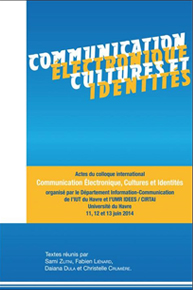 A “Journalist's Trap” for MPs, or Twitter as an Antechamber to Parliamentary Publicity Published in Zlitni S., Liénard F., Dula. D et Crumière C (eds.), Communication électronique, cultures et identités, Le Havre : Klog Editions, 2014, p. 371–378.
A “Journalist's Trap” for MPs, or Twitter as an Antechamber to Parliamentary Publicity Published in Zlitni S., Liénard F., Dula. D et Crumière C (eds.), Communication électronique, cultures et identités, Le Havre : Klog Editions, 2014, p. 371–378.
 Full text in French (open access)
This text is an opportunity to make an initial assessment of the use of the microblogging platform Twitter at the French National Assembly. An analysis of the dates on which MPs' accounts were opened since 2008 shows a dynamic of appropriation structured into three main periods, each with its own specific logic of use. At the end of this process, in September 2012, at the opening of the fourteenth legislature, Twitter became an essential media space, which suggests the hypothesis of a reconfiguration of relations between MPs and journalists. In fact, Twitter appears to be an extension of the Four Columns Hall (the traditional place where MPs and journalists meet), online and therefore open and with a multiplied effect.
Full text in French (open access)
This text is an opportunity to make an initial assessment of the use of the microblogging platform Twitter at the French National Assembly. An analysis of the dates on which MPs' accounts were opened since 2008 shows a dynamic of appropriation structured into three main periods, each with its own specific logic of use. At the end of this process, in September 2012, at the opening of the fourteenth legislature, Twitter became an essential media space, which suggests the hypothesis of a reconfiguration of relations between MPs and journalists. In fact, Twitter appears to be an extension of the Four Columns Hall (the traditional place where MPs and journalists meet), online and therefore open and with a multiplied effect.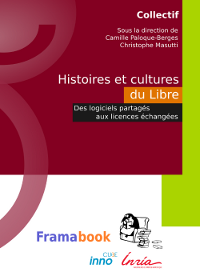 Free Software for the French National Assembly. Freedom of Code versus Freedom of Use Published in Paloque-Berges C. & Masutti C. (eds.), Histoires et cultures du Libre. Des logiciels partagés aux licences échangées, Framabook, Paris, 2013, p. 461-485.
Free Software for the French National Assembly. Freedom of Code versus Freedom of Use Published in Paloque-Berges C. & Masutti C. (eds.), Histoires et cultures du Libre. Des logiciels partagés aux licences échangées, Framabook, Paris, 2013, p. 461-485.
 Full text in French (open access)
At the end of 2006, for the thirteenth legislature, the French National Assembly chose to install exclusively free software on the computers of parliamentary offices. The story of the evolution of this project, from its conception to its realization and its deployment to the users, illustrates what expectations this technology has aroused during the decade 2000-2010, and therefore the challenges they faced. The fact is that the project did not live up to initial expectations: due to the flexibility it brought to the design of the specific systems, free software was used more to resolve the challenges posed by the sponsors rather than those of the users. Paradoxically, the implementation of this project ultimately led to MPs perceiving free software as coercive and anachronistic.
Full text in French (open access)
At the end of 2006, for the thirteenth legislature, the French National Assembly chose to install exclusively free software on the computers of parliamentary offices. The story of the evolution of this project, from its conception to its realization and its deployment to the users, illustrates what expectations this technology has aroused during the decade 2000-2010, and therefore the challenges they faced. The fact is that the project did not live up to initial expectations: due to the flexibility it brought to the design of the specific systems, free software was used more to resolve the challenges posed by the sponsors rather than those of the users. Paradoxically, the implementation of this project ultimately led to MPs perceiving free software as coercive and anachronistic.
Research reports
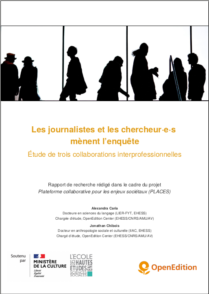 Journalists and researchers on the Field: A Study of Three Interprofessional Collaborations Co-authored with Alexandra Caria.
Journalists and researchers on the Field: A Study of Three Interprofessional Collaborations Co-authored with Alexandra Caria.
Research report of the project PLAteforme Collaborative pour les Enjeux Sociétaux (PLACES), Paris : OpenEdition Center, décembre 2020.
 Full text in French (open access)
The research project PLAteforme Collaborative pour les Enjeux Sociétaux (PLACES) ran from 2018 to 2020 within the French research unit OpenEdition Center. Its ambition was to make a new proposal to address the challenges raised by the public understanding of science practices in the context of the massive disinformation phenomenon that democratic societies are experiencing today. Indeed, journalists and researchers tend to play two distinct and successive roles, which leads to a compartmentalisation of professional practices and constitutes an obstacle to a good understanding of societal issues. In order to experiment renewed collaborations between journalists and researchers, the PLACES project invited them to be co-actors in the process of knowledge production and thus to take part in a citizen science process. Three experimental investigations were developed for this purpose, each bringing together a journalist and a researcher in social sciences and humanities, with the aim of putting these collaborations to the test and observing their obstacles as well as their richness. In this report, which reproduces the results of the research, the authors describe these partnerships and the various practice adjustments that have been made. They synthesize and problematize the challenges encountered and, finally, make recommendations for the creation of a platform to support this type of interprofessional collaboration.
Full text in French (open access)
The research project PLAteforme Collaborative pour les Enjeux Sociétaux (PLACES) ran from 2018 to 2020 within the French research unit OpenEdition Center. Its ambition was to make a new proposal to address the challenges raised by the public understanding of science practices in the context of the massive disinformation phenomenon that democratic societies are experiencing today. Indeed, journalists and researchers tend to play two distinct and successive roles, which leads to a compartmentalisation of professional practices and constitutes an obstacle to a good understanding of societal issues. In order to experiment renewed collaborations between journalists and researchers, the PLACES project invited them to be co-actors in the process of knowledge production and thus to take part in a citizen science process. Three experimental investigations were developed for this purpose, each bringing together a journalist and a researcher in social sciences and humanities, with the aim of putting these collaborations to the test and observing their obstacles as well as their richness. In this report, which reproduces the results of the research, the authors describe these partnerships and the various practice adjustments that have been made. They synthesize and problematize the challenges encountered and, finally, make recommendations for the creation of a platform to support this type of interprofessional collaboration.
PhD thesis
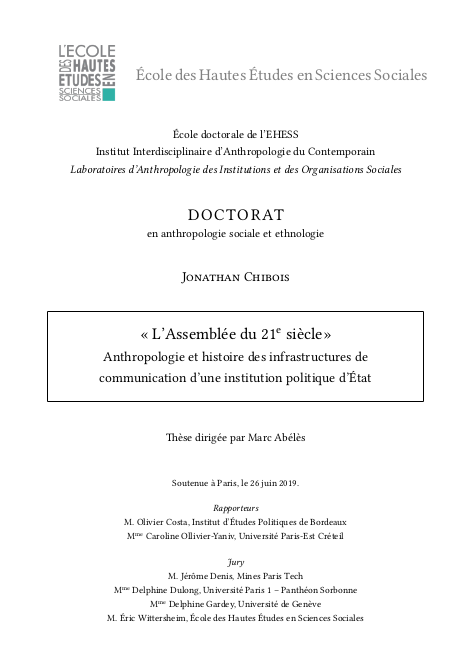 “The Assembly of the 21st Century”. Anthropology and History of the Communication Infrastructures of a State Political Institution Supervised by Marc Abélès, School of Advanced Studies of Social Science, defended the June 29, 2019.
“The Assembly of the 21st Century”. Anthropology and History of the Communication Infrastructures of a State Political Institution Supervised by Marc Abélès, School of Advanced Studies of Social Science, defended the June 29, 2019. Detailed information sheet on HAL archive. A long summary in English can be sent on request.
This thesis raises the question of the transformation of a state political institution, the French National Assembly, due to the emergence of electrical and digital communication technologies from the end of the 19th century. In a perspective of a political and technical anthropology whose purpose is to describe the change in the social order, this work suggests that the evolution of the means of communication may have led to the evolution of modern States. In order to verify this proposition, an ethnographic survey was undertaken at the Palais Bourbon in central Paris, with the aim of studying parliamentary infrastructure. Work in the archives of the Assembly's administration was carried out in parallel, in order to give historical depth to the observations made in situ. Due to the specificity of the data set, five case studies have been carried out, which correspond to chapters of this manuscript. While it is clear that today's Assembly no longer resembles the Assembly of yesteryear, it appears finally that all the developments in its communication infrastructure have been aimed at preserving a number of principles considered to be fundamental to the parliamentary order. From this point of view, the Assembly has been transformed as much as it has remained immutable, which raises questions about the very idea of changing the social order.
Detailed information sheet on HAL archive. A long summary in English can be sent on request.
This thesis raises the question of the transformation of a state political institution, the French National Assembly, due to the emergence of electrical and digital communication technologies from the end of the 19th century. In a perspective of a political and technical anthropology whose purpose is to describe the change in the social order, this work suggests that the evolution of the means of communication may have led to the evolution of modern States. In order to verify this proposition, an ethnographic survey was undertaken at the Palais Bourbon in central Paris, with the aim of studying parliamentary infrastructure. Work in the archives of the Assembly's administration was carried out in parallel, in order to give historical depth to the observations made in situ. Due to the specificity of the data set, five case studies have been carried out, which correspond to chapters of this manuscript. While it is clear that today's Assembly no longer resembles the Assembly of yesteryear, it appears finally that all the developments in its communication infrastructure have been aimed at preserving a number of principles considered to be fundamental to the parliamentary order. From this point of view, the Assembly has been transformed as much as it has remained immutable, which raises questions about the very idea of changing the social order.
Dictionary entries
-
Parlementarians and social media Published in Connil D., Jensel-Monge P., Montis A. (eds), Dictionnaire encyclopédique du Parlement, Éditions Larcier-Bruylant, Paris, 2023.
 Publishing in progress, forthcoming (in French)
Publishing in progress, forthcoming (in French) -
Digital democracy Published in Théviot A. (ed), Petit dico critique du big data, FYP Éditions, Paris, 2023.
 Publishing in progress, forthcoming (in French)
Publishing in progress, forthcoming (in French)
Reviews
- Emma Crewe (2021), « The Anthropology of Parliaments. Entanglements in Democratic Politics » Published in Redescriptions: Political Thought, Conceptual History and Feminist Theory , August 2022.

 Full text in English (open access)
Full text in English (open access) - Alain Caillé (2014), « Anti-utilitarisme et paradigme du don. Pour quoi ? » Published in Lectures, November 2014.
 Full text in French
Full text in French - Michel Naeples (2013), « Conjurer la guerre. Violence et pouvoir à Houaïlou (Nouvelle-Calédonie) » Published in Lectures, June 2013.
 Full text in French
Full text in French - Jean-Loup Amselle (2012), « L’anthropologue et le politique » Published in Lectures, November 2012.
 Full text in French
Full text in French - Alexandre Coutant (2012), « Internet et politique » Published in Lectures, June 2012.
 Full text in French
Full text in French - Elénie Mitropoulou, Nicole Pignier (eds.) (2012), « De l’interactivité aux interaction(s) médiatrice(s) » Published in Lectures, April 2012.
 Full text in French
Full text in French - Bernard Traimond (2012), « Penser la servitude volontaire. Un anthropologue de notre présent, Gérard Althabe » Published in Lectures, February 2012.
 Full text in French
Full text in French